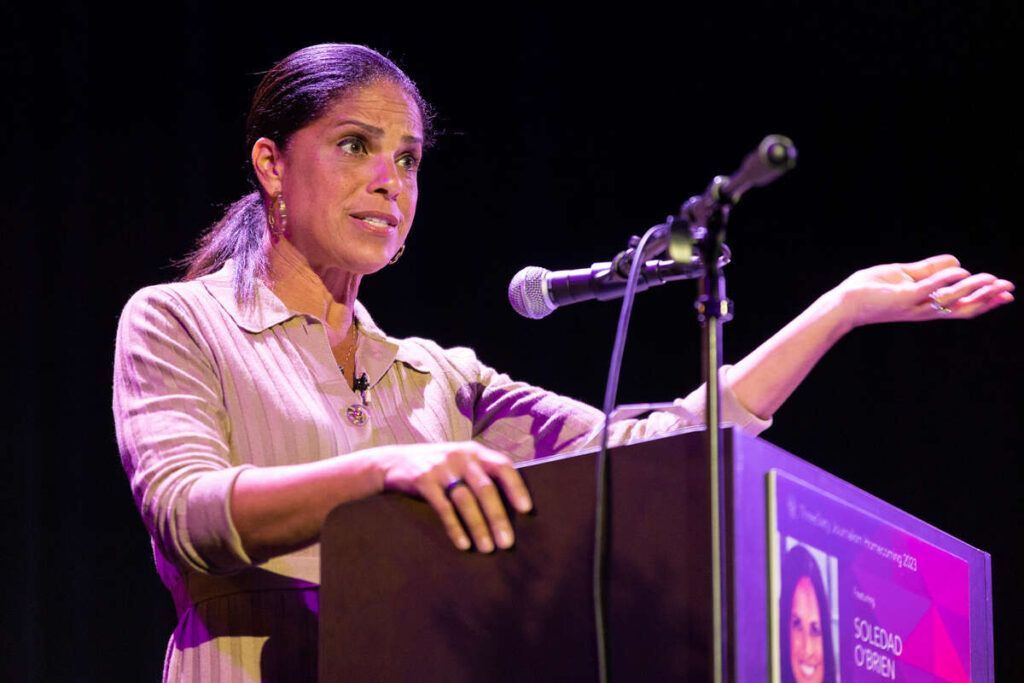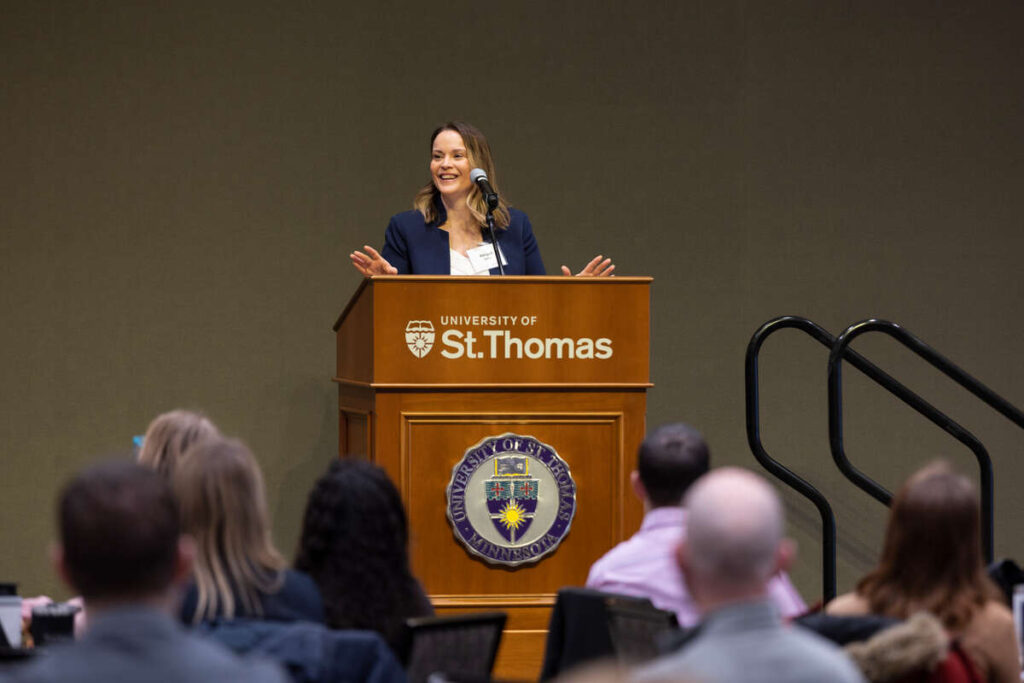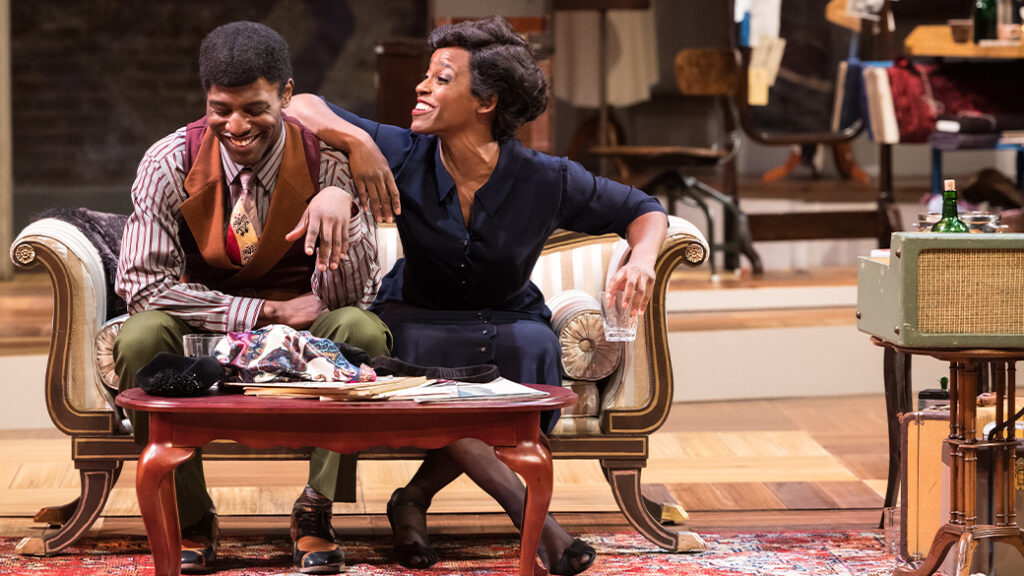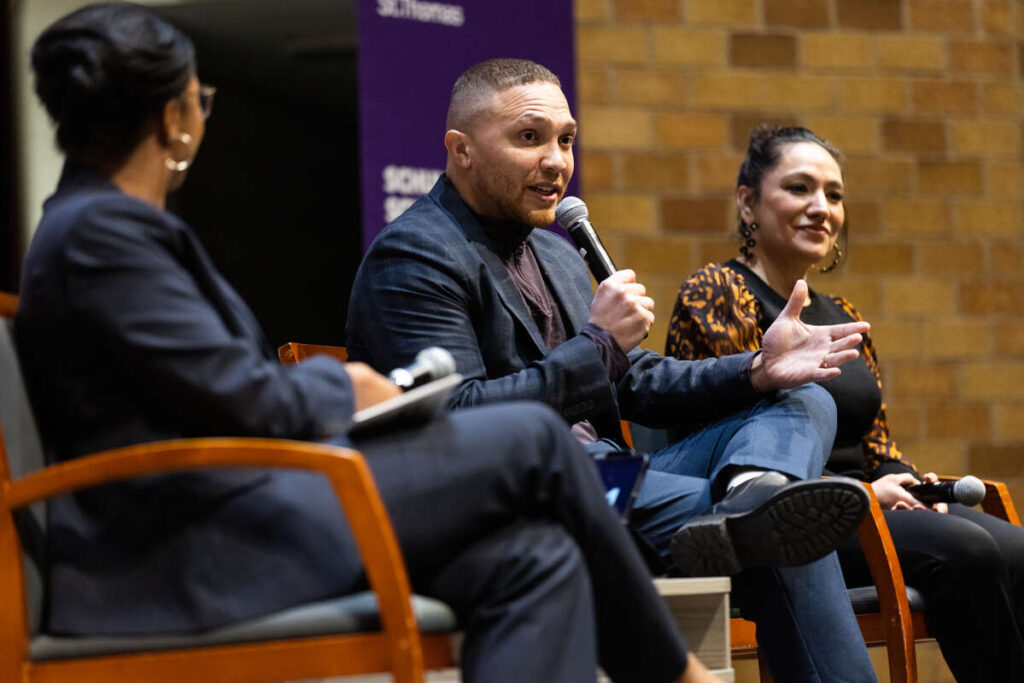St. Paul Mayor Melvin Carter joined Dr. Yohuru Williams, founding director of the Racial Justice Initiative, for a virtual discussion on government, equity, generational trauma and more on Nov. 19.
Before becoming the mayor, Carter served on the St. Paul City Council from 2008-13. He tackled issues surrounding job insecurity, economic development and housing.
“It’s exciting to always be able to see the dreams that our residents have planted in our community,” he said.
Here are five observations from the virtual talk.
Building a city that works for all involves everyone.
Carter has realized that roads to dignity and financial success tie back to education.
“As a city council member, I represented a neighborhood that had a 10% college graduation rate. If we could figure out how to do a better job preparing our young people and adults for the future, all those challenges downstream would be fundamentally different for us,” said Carter.
Carter focused on enhancing the educational experience for young Minnesotans, opening more doors for children in St. Paul.
“That's when we built the St. Paul Promise Foundation – when I was on the city council. In the end I don’t know what we could do as a community that is more urgent than preparing our young people to succeed for the future,” he said.
Under the Carter mayoral administration, St. Paul became the first city in America to launch a college savings account initiative for any child born on or after Jan. 1, 2020. A few years ago, the St. Paul Public Library became fine-free, breaking barriers anyone had to access new information and resources.
“When I became elected mayor, we had somewhere around 50,000 St. Paul residents whose lending privileges were revoked for as little as $10 in late fines dating back 10 years … which is insane,” he said.
In the first quarter of the fine-free policy, library use in all St. Paul low-income neighborhoods increased by double digits. Not only did this allow people to feel welcomed back into their community, but this policy showed the need for real participatory governance.
Paying a $10 late fine may be the alternative to putting dinner on the table for many families. If these families are not a part of the decision-making process, their struggles are overlooked.
“A decision that is relatively minor can make such an enormous difference. We are excited about all the other ways we can look at city hall through that kind of lens,” Carter said.
We need a driving definition of what we mean by equity.
Carter explained that equity is the core of how his administration is creating change. The term “equity” has mixed, individualized meanings to our society and must have a clear definition to drive the progression of politics today.
“Oftentimes those of us who carry the banner forget what it is that we are carrying,” Carter said.
In St. Paul, the operational definition of equity is that every part of the city understands they are owners of the community.
“[Equity] is ensuring that every resident and every neighborhood knows they are welcome to be a part of our decision-making processes,” he explained.
Becoming one of the only cities to rewrite their use-of-force policy is just one illustration of the city’s stride toward equity.
“This is a covenant between our officers and our community members, and it has to be developed together through a two-month, two-way kind of dialogue,” he said.
Carter continued, saying the city of St. Paul is driving toward exemplifying this definition of equity in everything the city is doing.
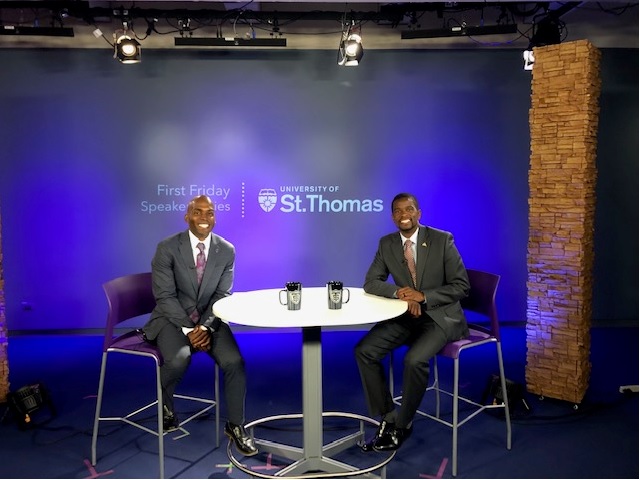
We need to work through generational trauma.
Carter and Williams discussed injustices against the African American community, such as the uprooting of the Rondo neighborhood and the Tuskegee Experiment. Wounds from racial injustices require not just time, but intention in order to heal.
“I grew up hearing my father tell the stories of not only having his family uprooted from their family home, not only having them receive pennies on the dollar … but to hear my father tell the stories about watching his parents' home [and] his family home burnt down by the St. Paul Fire Department as a training exercise, the level of generational trauma that still exists today is enormous,” he said.
Carter went on to say that not only do wounds like this remain without proper care, these wounds get worse.
“If you don’t heal a wound, it festers. It manifests in physical, mental, emotional [and] spiritual ways and that is what has happened over a period of time. We created hardship. We created trauma,” he said.
Prior to the development of I-94 in St. Paul, a thriving African American community lived in the Rondo neighborhood. After the construction split the community, the once flourishing community began to hurt. Today, this community battles low college graduation rates, high levels of poverty and public safety challenges.
“To suggest … the harm can be undone with anything short of significant intentionality, of significant office hours and millions of dollars of investment and heavy engagement is to break from reality,” he said.
The human experience is interconnected.
“My grandfather always used to say, ‘If experience won't teach you then nothing will,’” he said.
Carter said that if there was one thing he hopes the world learned from the pandemic, it is that as long as there is one community member suffering, we are all worse off.
“I think it's about taking an honest look at the ways in which we are all interconnected,” he said.
Carter says he prays we will not forget these lessons but rather take this new knowledge and create a more inclusive, better community.
“What I pray is that we don’t suffer the amnesia that we've suffered after all of our other minorly elements, but we remember the extent to which we found out in these past couple of years just how connected we are,” he said.
If you don't speak up, your voice won't be heard.
Looking back on his college years, Carter faced scenarios that forced him to find his voice. He explained that sometimes the experiences that uproot us makes us feel more connected to one another.
“I found my voice and my need to be involved in the world in college. We need the brilliant Tommie nation doing the same thing. This is your city, this is your community,” he said.
Inviting the St. Thomas community to exercise its voice in ways such as attending city planning budget meetings and electing cabinet members, Carter said he believes it is powerful when young people stand up.
“You look at all the cataclysmic moments when we expanded human rights, expanded our ability to connect with people or expanded the quality of life that our children can achieve. None of them [could] be possible without young people. None of them would be possible without college students,” he said.
Carter explained that he fears many students are waiting to pursue their ambitions until after the semester ends, after they graduate or after they buy a house.
“If you wait, the world won't change,” he finished.
